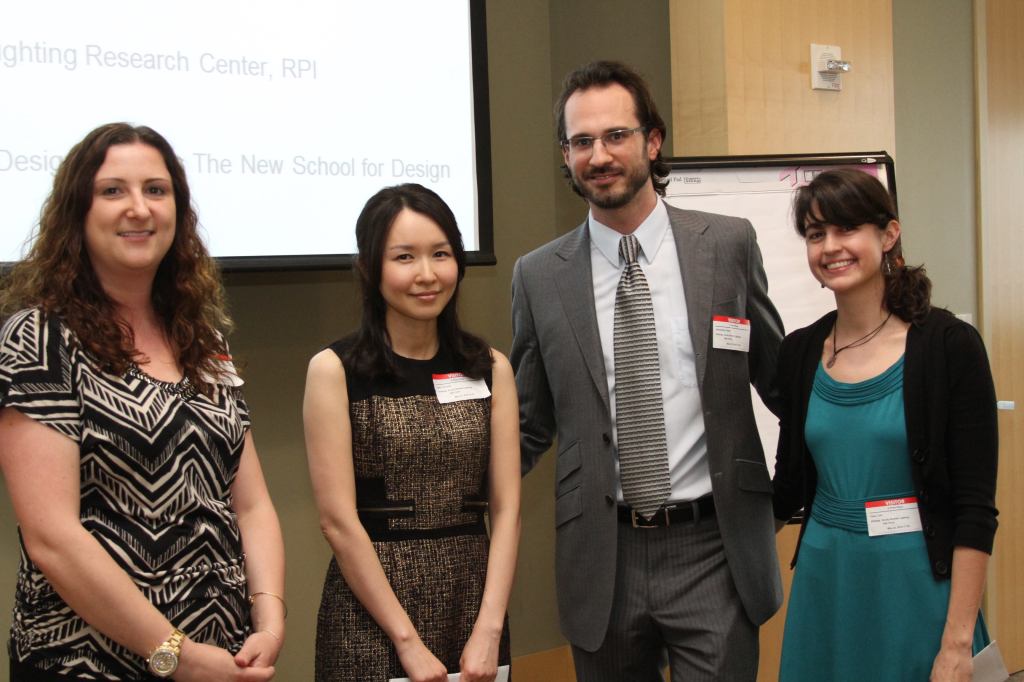At a ceremony held this past May 22, the Illuminating Engineering Society New York City Section (IESNYC) presented its annual thesis prize to two students enrolled in graduate lighting programs at universities in New York State. Jiyoung Bae, a student in the MFA Lighting Design program at the School of Constructed Environments at Parsons the New School for Design in New York City, and Erin Ryan, an MS Lighting candidate at the Lighting Research Center (LRC) at Rensselaer Polytechnic Institute in Troy, N.Y., were the recipients. Each received a $1000 from the IESNYC. The candidates were selected by their own schools and their names put forth to the IESNYC. In turn, the students’ theses were evaluated in line with the respective lighting programs’ criteria as well as the originality of the work and the project’s contributions to lighting in general. The selection process also included a presentation to the IESNYC committee overseeing this initiative.
Both projects explore the topic of light and health. Bae’s thesis, “Urban Therapy,” explores the side effects of time spent working indoors in urban environments and the resulting decreased exposure to daylight. Light therapy via architectural lighting solutions is a possible remedy. To test her hypothesis, she used the Rockefeller Center concourse as a case study site for introducing daylighting strategies to illuminate this space.
Ryan’s thesis, “The Impact of Weekly Lighting Condition on Performance, Sleepiness, and Mood,” examines how in just the short time frame of a week, lighting conditions impact an individual’s circadian cycle. She designed an experiment where 12 subjects spent eight hours a day for a week performing tasks in three different lighting conditions: daylight, low light, and bright light. Subjects were monitored for reaction time, memory and accuracy, sleepiness, and mood.
“It is especially gratifying for me as a graduate of the LRC’s MS Lighting Program to be able to present these awards on behalf of the Board of the New York City Section,” said Kelly Seeger, senior applications developer at Philips Research North America and IESNYC Board Member, who coordinated the IESNYC Thesis Prize program. “I’m pleased to facilitate the sharing of this important thesis work with our membership.”
